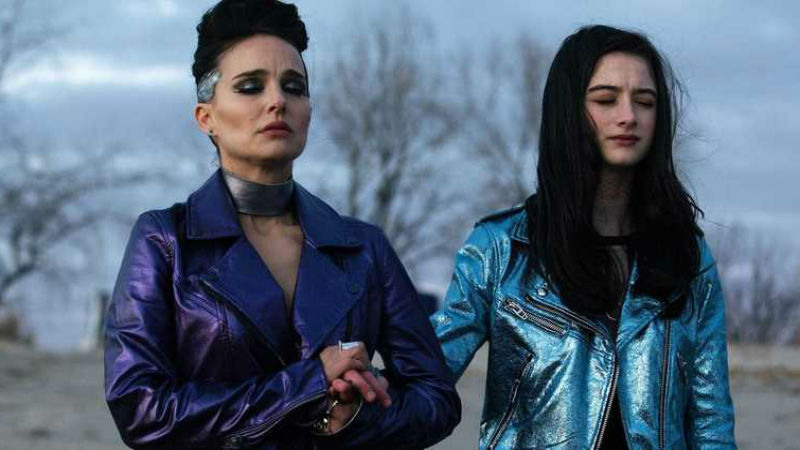QUICK SNAP: LIVE FROM TALLINN
Ukrainian director Marysia Nikitiuk lands an impactful blow with Lucky Girl (Я, Ніна). It’s the type of filmmaking that doesn’t so much drag us into the physical world of the character, as into their internal world – not to suggest that the physical world of Nina, played by psychologist, pole dancer and theatre actress Ksenia Khyzhniak, making her film debut, isn’t immersive. The film has an aesthetic and visual presence that effectively submerges the audience into the psyche of a woman plunged into a survival horror.
The spotlight is receding for popular TV talk show host Nina Sokil. When we’re first introduced to her, it’s easy to see why the film might have been given its title. Despite her success, Nina is cutthroat and her lover even tells her she has a “beast” of a personality. She vindicates her unpleasantness through the belief that she’s an agent of truth, using her TV platform and social media to expose the truth, and hold others to account. When she receives a shock diagnosis of bone cancer, her glamorous and celebrity lifestyle crumbles.
Nina is a character that appeals to our interest more than our sympathy. She has an air of authenticity, which isn’t surprising considering the story is inspired by the experiences of producer, Yanina Sokolova, who underwent a similar ordeal, and the nuanced skill of an actress who understands performance and human psychology.
It’s difficult to describe Lucky Girl as an enjoyable or entertaining experience. The film has a grim aura, and like Nina’s lover, who loves her even if his feelings are not reciprocated, we’re repulsed and yet we’re drawn to her. While she’s symbolic of what we dislike about the cult of personality and celebrity culture that are suffocating society, Nikitiuk’s skill is in the subtle art of seduction.
Gradually, we begin to feel sympathy for Nina, not because we’re positioned to identify with her, but to see her as the victim. Her point-of-view, her thoughts and feelings are the emotional heart of the film. If cinema is an empathy machine, we see its power here – Nina’s diagnosis and the fall from her celebrity peak lessens the emotional indifference we feel.
We see her as a part of wider systemic problems in the media and society. Once her colleagues learn of her cancer, Nina quickly sees herself being replaced. The promises of a return to the spotlight once she has recovered are suspiciously disingenuous, framing the media industry as a cannibalistic entity. It makes a statement about how we’re all replaceable, and no matter how high we rise, we simply become these replaceable cogs in the machine. Perhaps worse is when we need to be vulnerable, we need to protect ourselves by hiding our vulnerability – afraid to share it with others.
Lucky Girl echoes the body horror sub-genre as Nina’s physical transformation synchronises with her emotional transformation. There’s something about watching cancer humble this iron lady that inevitably provokes our sympathy, but it could be that we intuitively sense the transformational journey beginning – not necessarily of redemption, but someone finding a new and better version of themselves. It’s here that the story explores the idea that we have to grieve and come to terms with a loss of identity before we can move on. It frames grief in a different context to the traditional way we think about loss.
Nikitiuk has created a deeply humanist film that encourages us to find and express empathy for a challenging character, and to embrace her transformational journey. Cinema is about emotion, and the director offers us the gift of an emotionally impactful and rewarding experience that should be treasured.
Lucky Girl has just premiered in the Official Competition of the 26th Tallinn Black Nights Film Festival.










